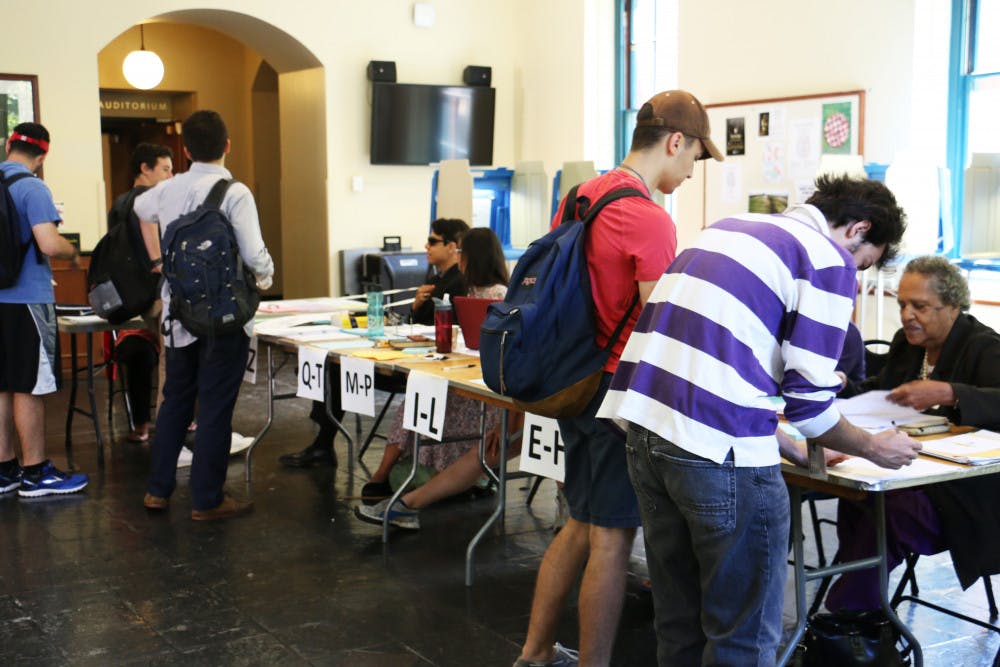Tuesday’s state primary changed little for the Ocean State, with most incumbent candidates retaining their parties’ nomination. Notable positions being contested included scattered mayoral seats, state legislative positions and the congressional spots of U.S. Rep. David Cicilline ’83, D-RI and U.S. Rep. Jim Langevin, D-RI.
As expected, the two Democratic representatives fended off their respective primary challengers, which, given the state’s largely Democratic base, increases their odds of reelection.
“I really think highly of David Cicilline,” said Jon Land ’79, who cast his vote at Temple Beth-El on the East Side of Providence. “I’m on the same page with him on about every issue.” While he admitted that Cicilline had a fairly strong chance of keeping his seat, Land also said that the possibility of an upset resulting from low voter turnout was enough to get him to the polls.
“I can’t watch political shows and get so upset about the direction we’re going in and then not do something about it,” Land said, adding that “if you don’t show up, then you can’t complain if things don’t work out the way you wanted.”
Abysmal voter participation has hardly had much of an effect on Rhode Island politics in the past. Only 13 percent of voters turned out in 2012 , but the Rhode Island General Assembly has been completely controlled by the Democratic party for decades, with the party currently holding 94 of the state’s 113 seats.
“When I walked out of the voting booth, I said, ‘I think we already know who’s going to win,” said Carol Delaney, adding that “this primary wasn’t really much of a contest.” Social programs were the most important policy issue for Delaney, who considered herself liberal in spite of the fact that elected Democrats in Rhode Island are typically more conservative than the national contingent.
The Rhode Island State Democratic party can be notably “heterogeneous,” said Scott Wolf ’75, adding that “a lot of the leadership in the legislature can be especially conservative” when it comes to social issues like reproductive rights. This contrasts greatly with U.S. Sen. Sheldon Whitehouse, D-RI and U.S. Sen. Jack Reed, D-RI, whose progressiveness Wolf said he identifies more with.
“I say shame on the Democratic party for not offering the voters a choice,” said Ray Mathieu, a conservative independent candidate running for state representative. Though his name did not appear on Tuesday’s primary ballot, Mathieu handed out pamphlets advocating his candidacy to potential voters outside of Temple Beth-El in hopes of a strong showing in November’s statewide general election.
“You don’t have to go crazy like the Republicans did and throw up 16 candidates (in the U.S. presidential primary), but we should have two good candidates that we can choose from,” Mathieu said. “We shouldn’t have one person who keeps getting reelected year after year after year to where it almost becomes an entitlement,” he added.





